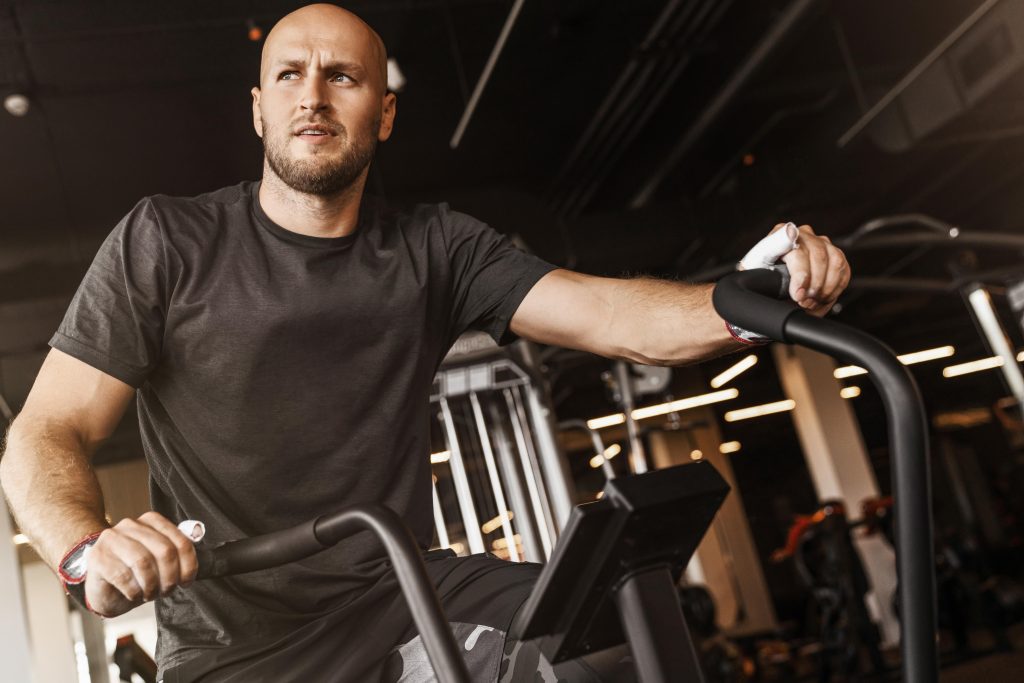Exercise not only benefits overall health, but it can also have some special advantages for sexual function as well. These include improved blood flow, reduced stress levels, and enhanced sexual arousal, among other effects.
According to the National Institutes of Health (NIA), physical activity is a proven way to reduce the risk of heart disease, diabetes, and stroke. Furthermore, it helps regulate insulin levels, hormones, and sexual drive by checking out italianafarma24.com.
Increased Blood Flow
The prostate gland, located near the base of your genitals, can be susceptible to infection, inflammation (prostatitis), and enlargement that interferes with urination (benign prostatic hyperplasia or BPH). Exercise however can help protect this gland from various conditions.
Exercise regularly, such as walking or jogging, to improve blood flow to the prostate. This has several advantages; it increases erection quality and duration, plus reduces your risk of developing impotence or other sexual health issues.
However, selecting the appropriate activity for you is essential. Avoid exercises that put undue strain on your body by choosing low-impact options like walking, cycling or hiking instead – all of which offer minimal impact.
Another essential factor in maintaining good health is your diet. Eating nutritious, healthy foods can improve blood flow and boost overall wellbeing. Fruits and vegetables are particularly beneficial, but also include whole grains, nuts, and legumes into each of your daily meals for extra benefits.
Additionally, you should avoid foods that can restrict circulation such as those high in salt or sodium. Too much salt in your diet may raise blood pressure, leading to damage to arteries and decreasing oxygen-rich blood flow to your prostate.
Given these reasons, it’s essential to reduce your salt intake if you have an enlarged prostate. Aim to consume 2,300 milligrams of salt or less daily and focus on potassium-rich foods like bananas or potatoes in order to minimize any negative effects from excess sodium consumption.
Exercise also promotes the production of nitric oxide, a natural vasodilator which has been found to increase blood flow by opening blocked arteries. Furthermore, research has identified compounds in red hot peppers and turmeric that promote nitric oxide production and may have beneficial effects on circulation.
Studies have also discovered that chronic exercise can improve physical performance and function in women. Furthermore, it may have a beneficial effect on physiological sexual arousal by activating the sympathetic nervous system and endocrine factors which increase sex drive and pleasure.
Increased Libido
Exercise can help if you’re dealing with low libido. Not only does it improve your mood, reduce anxiety and enhance sense of well-being, but it also boosts blood circulation which in turn makes you more physically aroused and ready for sexual encounters.
It’s essential to remember that your libido isn’t static. It can fluctuate due to factors like hormone levels, age, exercise habits and medications taken; stress may even play a role. Therefore, if you suspect there may be an issue with your libido or it has suddenly changed drastically it would be best to consult your doctor immediately.
Exercising can be beneficial to both men and women alike, as the hormones that influence libido are linked to physical activity like weight training or cardio.
Ana Gonzalez Herrera, founder and CEO of Hormone University, emphasizes that your libido is affected by hormones, stress levels, and your overall health. For optimal pleasure and wellbeing during sexual interactions with others, these factors should be balanced out for optimal wellbeing.
Herrera recommends talking to your doctor about finding a balance. Medication such as birth control and antidepressants can have an impact on libido, she adds, so it’s wise to consult a therapist if there are any issues related to mental health that could be affecting your libido.
Dr. Penhollow cautions against overexerting yourself when exercising: “Exercising too often can have a debilitating effect on your libido.” She suggests starting slowly and working up to larger amounts of activity as needed.
Another way to enhance your libido through exercise is by increasing serotonin levels in your body. This hormone has the power to improve moods, reduce anxiety and keep you mentally focused on what matters most. Furthermore, it increases feelings of well-being, confidence and makes you more likely to engage in sexual activities.
What type of exercises best suit your libido depends on individual body and goals, but several have been scientifically proven to increase sexual drive. Strength-training activities like weightlifting are said to increase testosterone, leading to stronger urges and greater sexual satisfaction.
Reduced Stress
Stress is an inevitable part of life, but long-term stress can have serious repercussions for your wellbeing. Not only does it increase the risk of heart disease, high blood pressure, obesity and diabetes but it also weakens your immune system and puts you at greater vulnerability to depression.
Fortunately, learning how to reduce your stress can be a crucial first step in improving your overall health and well-being. Speak with a qualified mental health professional such as a psychologist, psychiatrist, therapist or counselor about the many ways stress can impact you physically and how to get relief from it by consulting with your doctor or visiting an accredited mental health facility like a psychologist, psychiatrist, therapist or counselor for further assistance.
Exercise is an excellent way to reduce your stress level as it helps you focus on something other than your problems. The endorphins released during a vigorous workout will help you relax and de-stress, leaving you feeling more at ease in the present.
Exercising can also be a great way to incorporate some social interaction into your day, which has been linked to stress reduction. A study found that women who exercised three or more times per week reported lower levels of stress than those who either didn’t exercise at all or only did it once a month.
Exercising can reduce your stress levels because it provides a break from your daily schedule and leaves you feeling refreshed and relaxed. This in turn leads to improved quality sleep – an essential factor in both mental and physical wellbeing.
For optimal results, aim to exercise at least three times a week and up to five times. Not only does regular exercise reduce stress, but it’s an effective way to maintain cardiovascular fitness – which may lower your risk for developing conditions like heart disease and stroke.
No matter how difficult it may seem to fit in a workout or walk, exercise is one of the best things you can do for your health and happiness. Not only does it reduce stress levels, but it also makes you feel better physically and emotionally by increasing blood flow, elevating your moods and maintaining a healthy weight.
Increased Flexibility
Exercising is an excellent way to improve your overall wellbeing, reduce the risk of heart disease and maintain stable blood glucose levels. Not only that but it can also provide you with extra energy and sharpen up memory!
Exercise not only offers physical benefits, but it can also boost one’s self-worth and lead to more sexual arousal during intimate encounters. Cardio training increases blood flow during physical activity which has been known to increase libido in both men and women alike.
Stretching and strengthening exercises are great for increasing flexibility. They can be done at home or in a gym, and may include aerobic or resistance training components.
Flexibility is the ability of your joints and muscles to move through a certain range of motion without experiencing pain or discomfort. Without optimal flexibility, it may become difficult to move freely and may even lead to injury from overuse injuries or repetitive stress injuries.
Fortunately, most people can learn how to be more flexible. It is not an impossible goal; however, it does require effort and persistence.
To dramatically improve your flexibility, incorporate stretching into your daily life. Muscles have memory, so when you do stretches regularly, they become familiar with the positions and can gradually get stronger over time with practice.
To accelerate your progress, strive to complete at least 5 sets of stretches each day and focus on moving your body in different ways. You can do this through static stretches which hold positions for a set time (like holding your knees up on a box) or dynamic stretches which gradually move you through specific movements or positions.
Strengthening and stretching are great for improving overall fitness levels, according to the National Academy of Sports Medicine. They also help you maintain balance while preventing muscle imbalances that could cause injury or other issues.
If you are new to strength and flexibility training, consulting a certified personal trainer or physical therapist is recommended. They can assist in creating an exercise program that will maximize results while keeping you safe during exercise.




